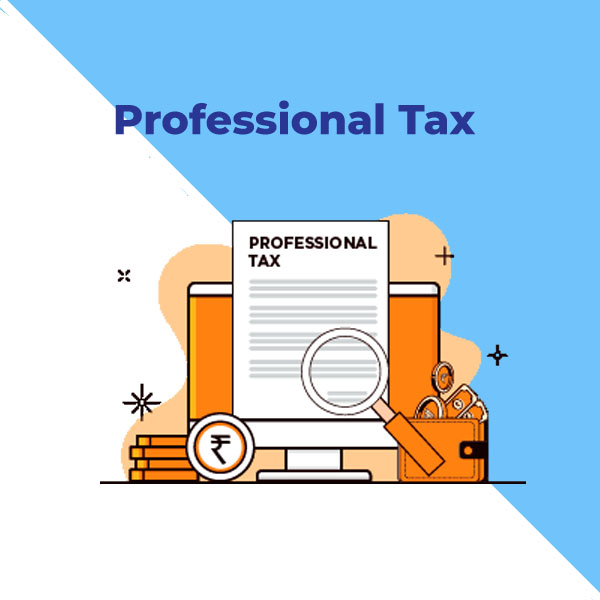Professional Tax (PT) Registration Process
Navigating the Terrain: A Comprehensive Guide to Professional Tax (PT) Registration Process with FAQs
Introduction
Embarking on the journey of Professional Tax (PT) registration requires a nuanced understanding of the process and its implications. This guide serves as a comprehensive resource, offering step-by-step insights into the PT registration process, frequently asked questions (FAQs), and key considerations. By demystifying the PT registration journey, businesses and professionals can ensure compliance with tax regulations and pave the way for financial stability.

Overview of Professional Tax
- Understanding Professional Tax:
- Definition and significance of Professional Tax as a state-level tax on income earned by individuals and businesses.
- Varied structures and rates of Professional Tax across different states in India.
- Importance of PT Registration:
- The legal obligation for professionals and businesses to register for Professional Tax.
- Consequences of non-compliance and the importance of obtaining a PT registration certificate.
The PT Registration Process: Step-by-Step Guide
- Determining Applicability:
- Criteria for determining whether an individual or business is liable to pay Professional Tax.
- Understanding the threshold limits and exemptions applicable.
- Document Preparation:
- Compilation of essential documents required for PT registration.
- Commonly requested documents, such as PAN card, address proof, and proof of business registration.
- Online Application Process:
- Step-by-step guidance on navigating the online PT registration portal.
- Filling out the application form and uploading necessary documents.
- Verification and Approval:
- The verification process undertaken by tax authorities.
- Timelines for approval and issuance of the PT registration certificate.
- Post-Registration Compliance:
- Obligations and responsibilities post obtaining the PT registration certificate.
- Periodic filing of returns and payment of Professional Tax.
FAQs About Professional Tax Registration
- Who is liable to pay Professional Tax?
- Individuals engaged in professions or businesses and employers are generally liable to pay Professional Tax.
- What documents are required for PT registration?
- Commonly required documents include PAN card, address proof, proof of business registration, and employee details.
- Can PT registration be done online?
- Yes, most states provide an online portal for the convenience of individuals and businesses to apply for PT registration.
- Are there exemptions from Professional Tax?
- Exemptions may vary by state and occupation. Common exemptions include those for low-income individuals and certain categories of professionals.
- How is Professional Tax calculated?
- Professional Tax is typically calculated based on factors such as income slab, number of employees, and nature of business.
Common Challenges and Solutions in PT Registration
- Delayed Approval:
- Addressing challenges related to delayed approval by ensuring accurate documentation and following up with tax authorities.
- Understanding State-Specific Regulations:
- Recognizing challenges arising from state-specific variations and ensuring compliance with unique regulations in each state.
Benefits of Professional Tax Registration
- Legal Compliance:
- Ensuring legal compliance with state tax regulations, avoiding penalties, and fostering a positive relationship with tax authorities.
- Access to Government Benefits:
- Eligibility for government benefits and schemes that may be available to businesses and professionals registered under Professional Tax.
Conclusion: Navigating Professional Tax with Confidence
In conclusion, understanding the Professional Tax registration process is integral to maintaining compliance and avoiding legal repercussions. This guide provides a comprehensive roadmap, addressing FAQs, challenges, and benefits associated with PT registration. By navigating the PT registration process with confidence, individuals and businesses can contribute to their financial stability and adhere to state tax regulations effectively.